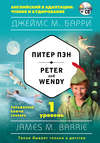Kitabı oku: «The Forsyte Saga, Volume III. Awakening. To Let», sayfa 9
XII. – CAPRICE
Fleur sped on. She had need of rapid motion; she was late, and wanted all her wits about her when she got in. She passed the islands, the station, and hotel, and was about to take the ferry, when she saw a skiff with a young man standing up in it, and holding to the bushes.
“Miss Forsyte,” he said; “let me put you across. I’ve come on purpose.”
She looked at him in blank amazement.
“It’s all right, I’ve been having tea with your people. I thought I’d save you the last bit. It’s on my way, I’m just off back to Pangbourne. My name’s Mont. I saw you at the picture-gallery – you remember – when your father invited me to see his pictures.”
“Oh!” said Fleur; “yes – the handkerchief.”
To this young man she owed Jon; and, taking his hand, she stepped down into the skiff. Still emotional, and a little out of breath, she sat silent; not so the young man. She had never heard any one say so much in so short a time. He told her his age, twenty-four; his weight, ten stone eleven; his place of residence, not far away; described his sensations under fire, and what it felt like to be gassed; criticized the Juno, mentioned his own conception of that goddess; commented on the Goya copy, said Fleur was not too awfully like it; sketched in rapidly the condition of England; spoke of Monsieur Profond – or whatever his name was – as “an awful sport”; thought her father had some “ripping” pictures and some rather “dug-up”; hoped he might row down again and take her on the river because he was quite trustworthy; inquired her opinion of Tchekov, gave her his own; wished they could go to the Russian ballet together some time – considered the name Fleur Forsyte simply topping; cursed his people for giving him the name of Michael on the top of Mont; outlined his father, and said that if she wanted a good book she should read “Job”; his father was rather like Job while Job still had land.
“But Job didn’t have land,” Fleur murmured; “he only had flocks and herds and moved on.”
“Ah!” answered Michael Mont, “I wish my gov’nor would move on. Not that I want his land. Land’s an awful bore in these days, don’t you think?”
“We never have it in my family,” said Fleur. “We have everything else. I believe one of my great-uncles once had a sentimental farm in Dorset, because we came from there originally, but it cost him more than it made him happy.”
“Did he sell it?”
“No; he kept it.”
“Why?”
“Because nobody would buy it.”
“Good for the old boy!”
“No, it wasn’t good for him. Father says it soured him. His name was Swithin.”
“What a corking name!”
“Do you know that we’re getting farther off, not nearer? This river flows.”
“Splendid!” cried Mont, dipping his sculls vaguely; “it’s good to meet a girl who’s got wit.”
“But better to meet a young man who’s got it in the plural.”
Young Mont raised a hand to tear his hair.
“Look out!” cried Fleur. “Your scull!”
“All right! It’s thick enough to bear a scratch.”
“Do you mind sculling?” said Fleur severely. “I want to get in.”
“Ah!” said Mont; “but when you get in, you see, I shan’t see you any more to-day. Fini, as the French girl said when she jumped on her bed after saying her prayers. Don’t you bless the day that gave you a French mother, and a name like yours?”
“I like my name, but Father gave it me. Mother wanted me called Marguerite.”
“Which is absurd. Do you mind calling me M. M. and letting me call you F. F.? It’s in the spirit of the age.”
“I don’t mind anything, so long as I get in.”
Mont caught a little crab, and answered: “That was a nasty one!”
“Please row.”
“I am.” And he did for several strokes, looking at her with rueful eagerness. “Of course, you know,” he ejaculated, pausing, “that I came to see you, not your father’s pictures.”
Fleur rose.
“If you don’t row, I shall get out and swim.”
“Really and truly? Then I could come in after you.”
“Mr. Mont, I’m late and tired; please put me on shore at once.”
When she stepped out on to the garden landing-stage he rose, and grasping his hair with both hands, looked at her.
Fleur smiled.
“Don’t!” cried the irrepressible Mont. “I know you’re going to say: ‘Out, damned hair!’”
Fleur whisked round, threw him a wave of her hand. “Good-bye, Mr. M.M.!” she called, and was gone among the rose-trees. She looked at her wrist-watch and the windows of the house. It struck her as curiously uninhabited. Past six! The pigeons were just gathering to roost, and sunlight slanted on the dovecot, on their snowy feathers, and beyond in a shower on the top boughs of the woods. The click of billiard-balls came from the ingle-nook – Jack Cardigan, no doubt; a faint rustling, too, from an eucalyptus-tree, startling Southerner in this old English garden. She reached the verandah and was passing in, but stopped at the sound of voices from the drawing-room to her left. Mother! Monsieur Profond! From behind the verandah screen which fenced the ingle-nook she heard these words:
“I don’t, Annette.”
Did Father know that he called her mother “Annette”? Always on the side of her Father – as children are ever on one side or the other in houses where relations are a little strained – she stood, uncertain. Her mother was speaking in her low, pleasing, slightly metallic voice – one word she caught: “Demain.” And Profond’s answer: “All right.” Fleur frowned. A little sound came out into the stillness. Then Profond’s voice: “I’m takin’ a small stroll.”
Fleur darted through the window into the morning-room. There he came from the drawing-room, crossing the verandah, down the lawn; and the click of billiard-balls which, in listening for other sounds, she had ceased to hear, began again. She shook herself, passed into the hall, and opened the drawing-room door. Her mother was sitting on the sofa between the windows, her knees crossed, her head resting on a cushion, her lips half parted, her eyes half closed. She looked extraordinarily handsome.
“Ah! Here you are, Fleur! Your father is beginning to fuss.”
“Where is he?”
“In the picture-gallery. Go up!”
“What are you going to do to-morrow, Mother?”
“To-morrow? I go up to London with your aunt.”
“I thought you might be. Will you get me a quite plain parasol?”
“What colour?”
“Green. They’re all going back, I suppose.”
“Yes, all; you will console your father. Kiss me, then.”
Fleur crossed the room, stooped, received a kiss on her forehead, and went out past the impress of a form on the sofa-cushions in the other corner. She ran up-stairs.
Fleur was by no means the old-fashioned daughter who demands the regulation of her parents’ lives in accordance with the standard imposed upon herself. She claimed to regulate her own life, not those of others; besides, an unerring instinct for what was likely to advantage her own case was already at work. In a disturbed domestic atmosphere the heart she had set on Jon would have a better chance. None the less was she offended, as a flower by a crisping wind. If that man had really been kissing her mother it was – serious, and her father ought to know. “Demain!” “All right!” And her mother going up to Town! She turned into her bedroom and hung out of the window to cool her face, which had suddenly grown very hot. Jon must be at the station by now! What did her father know about Jon? Probably everything – pretty nearly!
She changed her dress, so as to look as if she had been in some time, and ran up to the gallery.
Soames was standing stubbornly still before his Alfred Stevens – the picture he loved best. He did not turn at the sound of the door, but she knew he had heard, and she knew he was hurt. She came up softly behind him, put her arms round his neck, and poked her face over his shoulder till her cheek lay against his. It was an advance which had never yet failed, but it failed her now, and she augured the worst. “Well,” he said stonily, “so you’ve come!”
“Is that all,” murmured Fleur, “from a bad parent?” And she rubbed her cheek against his.
Soames shook his head so far as that was possible.
“Why do you keep me on tenterhooks like this, putting me off and off?”
“Darling, it was very harmless.”
“Harmless! Much you know what’s harmless and what isn’t.”
Fleur dropped her arms.
“Well, then, dear, suppose you tell me; and be quite frank about it.”
And she went over to the window-seat.
Her father had turned from his picture, and was staring at his feet. He looked very grey. ‘He has nice small feet,’ she thought, catching his eye, at once averted from her.
“You’re my only comfort,” said Soames suddenly, “and you go on like this.”
Fleur’s heart began to beat.
“Like what, dear?”
Again Soames gave her a look which, but for the affection in it, might have been called furtive.
“You know what I told you,” he said. “I don’t choose to have anything to do with that branch of our family.”
“Yes, ducky, but I don’t know why I shouldn’t.”
Soames turned on his heel.
“I’m not going into the reasons,” he said; “you ought to trust me, Fleur!”
The way he spoke those words affected Fleur, but she thought of Jon, and was silent, tapping her foot against the wainscot. Unconsciously she had assumed a modern attitude, with one leg twisted in and out of the other, with her chin on one bent wrist, her other arm across her chest, and its hand hugging her elbow; there was not a line of her that was not involuted, and yet – in spite of all – she retained a certain grace.
“You knew my wishes,” Soames went on, “and yet you stayed on there four days. And I suppose that boy came with you to-day.”
Fleur kept her eyes on him.
“I don’t ask you anything,” said Soames; “I make no inquisition where you’re concerned.”
Fleur suddenly stood up, leaning out at the window with her chin on her hands. The sun had sunk behind trees, the pigeons were perched, quite still, on the edge of the dove-cot; the click of the billiard-balls mounted, and a faint radiance shone out below where Jack Cardigan had turned the light up.
“Will it make you any happier,” she said suddenly, “if I promise you not to see him for say – the next six weeks?” She was not prepared for a sort of tremble in the blankness of his voice.
“Six weeks? Six years – sixty years more like. Don’t delude yourself, Fleur; don’t delude yourself!”
Fleur turned in alarm.
“Father, what is it?”
Soames came close enough to see her face.
“Don’t tell me,” he said, “that you’re foolish enough to have any feeling beyond caprice. That would be too much!” And he laughed.
Fleur, who had never heard him laugh like that, thought: ‘Then it is deep! Oh! what is it?’ And putting her hand through his arm she said lightly:
“No, of course; caprice. Only, I like my caprices and I don’t like yours, dear.”
“Mine!” said Soames bitterly, and turned away.
The light outside had chilled, and threw a chalky whiteness on the river. The trees had lost all gaiety of colour. She felt a sudden hunger for Jon’s face, for his hands, and the feel of his lips again on hers. And pressing her arms tight across her breast she forced out a little light laugh.
“O la! la! What a small fuss! as Profond would say. Father, I don’t like that man.”
She saw him stop, and take something out of his breast pocket.
“You don’t?” he said. “Why?”
“Nothing,” murmured Fleur; “just caprice!”
“No,” said Soames; “not caprice!” And he tore what was in his hands across. “You’re right. I don’t like him either!”
“Look!” said Fleur softly. “There he goes! I hate his shoes; they don’t make any noise.”
Down in the failing light Prosper Profond moved, his hands in his side pockets, whistling softly in his beard; he stopped, and glanced up at the sky, as if saying: “I don’t think much of that small moon.”
Fleur drew back. “Isn’t he a great cat?” she whispered; and the sharp click of the billiard-balls rose, as if Jack Cardigan had capped the cat, the moon, caprice, and tragedy with: “In off the red!”
Monsieur Profond had resumed his stroll, to a teasing little tune in his beard. What was it? Oh! yes, from “Rigoletto”: “Donna a mobile.” Just what he would think! She squeezed her father’s arm.
“Prowling!” she muttered, as he turned the corner of the house. It was past that disillusioned moment which divides the day and night-still and lingering and warm, with hawthorn scent and lilac scent clinging on the riverside air. A blackbird suddenly burst out. Jon would be in London by now; in the Park perhaps, crossing the Serpentine, thinking of her! A little sound beside her made her turn her eyes; her father was again tearing the paper in his hands. Fleur saw it was a cheque.
“I shan’t sell him my Gauguin,” he said. “I don’t know what your aunt and Imogen see in him.”
“Or Mother.”
“Your mother!” said Soames.
‘Poor Father!’ she thought. ‘He never looks happy – not really happy. I don’t want to make him worse, but of course I shall have to, when Jon comes back. Oh! well, sufficient unto the night!’
“I’m going to dress,” she said.
In her room she had a fancy to put on her “freak” dress. It was of gold tissue with little trousers of the same, tightly drawn in at the ankles, a page’s cape slung from the shoulders, little gold shoes, and a gold-winged Mercury helmet; and all over her were tiny gold bells, especially on the helmet; so that if she shook her head she pealed. When she was dressed she felt quite sick because Jon could not see her; it even seemed a pity that the sprightly young man Michael Mont would not have a view. But the gong had sounded, and she went down.
She made a sensation in the drawing-room. Winifred thought it “Most amusing.” Imogen was enraptured. Jack Cardigan called it “stunning,” “ripping,” “topping,” and “corking.”
Monsieur Profond, smiling with his eyes, said: “That’s a nice small dress!” Her mother, very handsome in black, sat looking at her, and said nothing. It remained for her father to apply the test of common sense. “What did you put on that thing for? You’re not going to dance.”
Fleur spun round, and the bells pealed.
“Caprice!”
Soames stared at her, and, turning away, gave his arm to Winifred. Jack Cardigan took her mother. Prosper Profond took Imogen. Fleur went in by herself, with her bells jingling…
The “small” moon had soon dropped down, and May night had fallen soft and warm, enwrapping with its grape-bloom colour and its scents the billion caprices, intrigues, passions, longings, and regrets of men and women. Happy was Jack Cardigan who snored into Imogen’s white shoulder, fit as a flea; or Timothy in his “mausoleum,” too old for anything but baby’s slumber. For so many lay awake, or dreamed, teased by the criss-cross of the world.
The dew fell and the flowers closed; cattle grazed on in the river meadows, feeling with their tongues for the grass they could not see; and the sheep on the Downs lay quiet as stones. Pheasants in the tall trees of the Pangbourne woods, larks on their grassy nests above the gravel-pit at Wansdon, swallows in the eaves at Robin Hill, and the sparrows of Mayfair, all made a dreamless night of it, soothed by the lack of wind. The Mayfly filly, hardly accustomed to her new quarters, scraped at her straw a little; and the few night-flitting things – bats, moths, owls – were vigorous in the warm darkness; but the peace of night lay in the brain of all day-time Nature, colourless and still. Men and women, alone, riding the hobby-horses of anxiety or love, burned their wavering tapers of dream and thought into the lonely hours.
Fleur, leaning out of her window, heard the hall clock’s muffled chime of twelve, the tiny splash of a fish, the sudden shaking of an aspen’s leaves in the puffs of breeze that rose along the river, the distant rumble of a night train, and time and again the sounds which none can put a name to in the darkness, soft obscure expressions of uncatalogued emotions from man and beast, bird and machine, or, maybe, from departed Forsytes, Darties, Cardigans, taking night strolls back into a world which had once suited their embodied spirits. But Fleur heeded not these sounds; her spirit, far from disembodied, fled with swift wing from railway-carriage to flowery hedge, straining after Jon, tenacious of his forbidden image, and the sound of his voice, which was taboo. And she crinkled her nose, retrieving from the perfume of the riverside night that moment when his hand slipped between the mayflowers and her cheek. Long she leaned out in her freak dress, keen to burn her wings at life’s candle; while the moths brushed her cheeks on their pilgrimage to the lamp on her dressing-table, ignorant that in a Forsyte’s house there is no open flame. But at last even she felt sleepy, and, forgetting her bells, drew quickly in.
Through the open window of his room, alongside Annette’s, Soames, wakeful too, heard their thin faint tinkle, as it might be shaken from stars, or the dewdrops falling from a flower, if one could hear such sounds.
‘Caprice!’ he thought. ‘I can’t tell. She’s wilful. What shall I do? Fleur!’
And long into the “small” night he brooded.
PART II
I. – MOTHER AND SON
To say that Jon Forsyte accompanied his mother to Spain unwillingly would scarcely have been adequate. He went as a well-natured dog goes for a walk with its mistress, leaving a choice mutton-bone on the lawn. He went looking back at it. Forsytes deprived of their mutton-bones are wont to sulk. But Jon had little sulkiness in his composition. He adored his mother, and it was his first travel. Spain had become Italy by his simply saying: “I’d rather go to Spain, Mum; you’ve been to Italy so many times; I’d like it new to both of us.”
The fellow was subtle besides being naive. He never forgot that he was going to shorten the proposed two months into six weeks, and must therefore show no sign of wishing to do so. For one with so enticing a mutton-bone and so fixed an idea, he made a good enough travelling companion, indifferent to where or when he arrived, superior to food, and thoroughly appreciative of a country strange to the most travelled Englishman. Fleur’s wisdom in refusing to write to him was profound, for he reached each new place entirely without hope or fever, and could concentrate immediate attention on the donkeys and tumbling bells, the priests, patios, beggars, children, crowing cocks, sombreros, cactus-hedges, old high white villages, goats, olive-trees, greening plains, singing birds in tiny cages, watersellers, sunsets, melons, mules, great churches, pictures, and swimming grey-brown mountains of a fascinating land.
It was already hot, and they enjoyed an absence of their compatriots. Jon, who, so far as he knew, had no blood in him which was not English, was often innately unhappy in the presence of his own countrymen. He felt they had no nonsense about them, and took a more practical view of things than himself. He confided to his mother that he must be an unsociable beast – it was jolly to be away from everybody who could talk about the things people did talk about. To which Irene had replied simply:
“Yes, Jon, I know.”
In this isolation he had unparalleled opportunities of appreciating what few sons can apprehend, the whole-heartedness of a mother’s love. Knowledge of something kept from her made him, no doubt, unduly sensitive; and a Southern people stimulated his admiration for her type of beauty, which he had been accustomed to hear called Spanish, but which he now perceived to be no such thing. Her beauty was neither English, French, Spanish, nor Italian – it was special! He appreciated, too, as never before, his mother’s subtlety of instinct. He could not tell, for instance, whether she had noticed his absorption in that Goya picture, “La Vendimia,” or whether she knew that he had slipped back there after lunch and again next morning, to stand before it full half an hour, a second and third time. It was not Fleur, of course, but like enough to give him heartache – so dear to lovers – remembering her standing at the foot of his bed with her hand held above her head. To keep a postcard reproduction of this picture in his pocket and slip it out to look at became for Jon one of those bad habits which soon or late disclose themselves to eyes sharpened by love, fear, or jealousy. And his mother’s were sharpened by all three. In Granada he was fairly caught, sitting on a sun-warmed stone bench in a little battlemented garden on the Alhambra hill, whence he ought to have been looking at the view. His mother, he had thought, was examining the potted stocks between the polled acacias, when her voice said:
“Is that your favourite Goya, Jon?”
He checked, too late, a movement such as he might have made at school to conceal some surreptitious document, and answered: “Yes.”
“It certainly is most charming; but I think I prefer the ‘Quitasol’ Your father would go crazy about Goya; I don’t believe he saw them when he was in Spain in ‘92.”
In ‘92 – nine years before he had been born! What had been the previous existences of his father and his mother? If they had a right to share in his future, surely he had a right to share in their pasts. He looked up at her. But something in her face – a look of life hard-lived, the mysterious impress of emotions, experience, and suffering-seemed, with its incalculable depth, its purchased sanctity, to make curiosity impertinent. His mother must have had a wonderfully interesting life; she was so beautiful, and so – so – but he could not frame what he felt about her. He got up, and stood gazing down at the town, at the plain all green with crops, and the ring of mountains glamorous in sinking sunlight. Her life was like the past of this old Moorish city, full, deep, remote – his own life as yet such a baby of a thing, hopelessly ignorant and innocent! They said that in those mountains to the West, which rose sheer from the blue-green plain, as if out of a sea, Phoenicians had dwelt – a dark, strange, secret race, above the land! His mother’s life was as unknown to him, as secret, as that Phoenician past was to the town down there, whose cocks crowed and whose children played and clamoured so gaily, day in, day out. He felt aggrieved that she should know all about him and he nothing about her except that she loved him and his father, and was beautiful. His callow ignorance – he had not even had the advantage of the War, like nearly everybody else! – made him small in his own eyes.
That night, from the balcony of his bedroom, he gazed down on the roof of the town – as if inlaid with honeycomb of jet, ivory, and gold; and, long after, he lay awake, listening to the cry of the sentry as the hours struck, and forming in his head these lines:
“Voice in the night crying, down in the old sleeping
Spanish city darkened under her white stars!
“What says the voice-its clear-lingering anguish?
Just the watchman, telling his dateless tale of safety?
Just a road-man, flinging to the moon his song?
“No! Tis one deprived, whose lover’s heart is weeping,
Just his cry: ‘How long?’”
The word “deprived” seemed to him cold and unsatisfactory, but “bereaved” was too final, and no other word of two syllables short-long came to him, which would enable him to keep “whose lover’s heart is weeping.” It was past two by the time he had finished it, and past three before he went to sleep, having said it over to himself at least twenty-four times. Next day he wrote it out and enclosed it in one of those letters to Fleur which he always finished before he went down, so as to have his mind free and companionable.
About noon that same day, on the tiled terrace of their hotel, he felt a sudden dull pain in the back of his head, a queer sensation in the eyes, and sickness. The sun had touched him too affectionately. The next three days were passed in semi-darkness, and a dulled, aching indifference to all except the feel of ice on his forehead and his mother’s smile. She never moved from his room, never relaxed her noiseless vigilance, which seemed to Jon angelic. But there were moments when he was extremely sorry for himself, and wished terribly that Fleur could see him. Several times he took a poignant imaginary leave of her and of the earth, tears oozing out of his eyes. He even prepared the message he would send to her by his mother – who would regret to her dying day that she had ever sought to separate them – his poor mother! He was not slow, however, in perceiving that he had now his excuse for going home.
Toward half-past six each evening came a “gasgacha” of bells – a cascade of tumbling chimes, mounting from the city below and falling back chime on chime. After listening to them on the fourth day he said suddenly:
“I’d like to be back in England, Mum, the sun’s too hot.”
“Very well, darling. As soon as you’re fit to travel” And at once he felt better, and – meaner.
They had been out five weeks when they turned toward home. Jon’s head was restored to its pristine clarity, but he was confined to a hat lined by his mother with many layers of orange and green silk and he still walked from choice in the shade. As the long struggle of discretion between them drew to its close, he wondered more and more whether she could see his eagerness to get back to that which she had brought him away from. Condemned by Spanish Providence to spend a day in Madrid between their trains, it was but natural to go again to the Prado. Jon was elaborately casual this time before his Goya girl. Now that he was going back to her, he could afford a lesser scrutiny. It was his mother who lingered before the picture, saying:
“The face and the figure of the girl are exquisite.”
Jon heard her uneasily. Did she understand? But he felt once more that he was no match for her in self-control and subtlety. She could, in some supersensitive way, of which he had not the secret, feel the pulse of his thoughts; she knew by instinct what he hoped and feared and wished. It made him terribly uncomfortable and guilty, having, beyond most boys, a conscience. He wished she would be frank with him, he almost hoped for an open struggle. But none came, and steadily, silently, they travelled north. Thus did he first learn how much better than men women play a waiting game. In Paris they had again to pause for a day. Jon was grieved because it lasted two, owing to certain matters in connection with a dressmaker; as if his mother, who looked beautiful in anything, had any need of dresses! The happiest moment of his travel was that when he stepped on to the Folkestone boat.
Standing by the bulwark rail, with her arm in his, she said
“I’m afraid you haven’t enjoyed it much, Jon. But you’ve been very sweet to me.”
Jon squeezed her arm.
“Oh! yes, I’ve enjoyed it awfully-except for my head lately.”
And now that the end had come, he really had, feeling a sort of glamour over the past weeks – a kind of painful pleasure, such as he had tried to screw into those lines about the voice in the night crying; a feeling such as he had known as a small boy listening avidly to Chopin, yet wanting to cry. And he wondered why it was that he couldn’t say to her quite simply what she had said to him:
“You were very sweet to me.” Odd – one never could be nice and natural like that! He substituted the words: “I expect we shall be sick.”
They were, and reached London somewhat attenuated, having been away six weeks and two days, without a single allusion to the subject which had hardly ever ceased to occupy their minds.




















